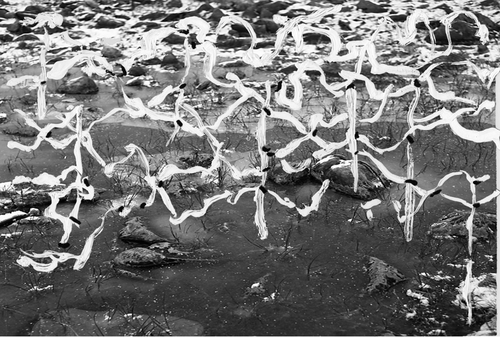
Appel à contributions
Geographies of Desire
Avant le 14 décembre - Groningen (Pays-Bas)
Fourth International and Interdisciplinary Conference on Emotional Geographies
1-3 July 2013 at the University of Groningen, The Netherlands
Session organisers : Alex Fanghanel (University College London, UK) ; Jason Lim (Queen Mary, University of London, UK)
Why do we desire as we do ? Where and when do bodies become desiring, and under what conditions ? What are the politics of desire ? What are the problems with desire ? What are the potentialities of a desire that is political ?
In this session, we seek to bring together papers that explore desire, wherein ‘desire’ can be understood in a number of ways : as an affect ; as an emotion ; as the ways in which bodies enter into relation with one another ; as an organising force ; and so on. Desire may be thought in positive terms with a potency and generative quality of its own, yet it may also be understood as expressing a lack– a desire that may have exclusionary effects. For Deleuze and Guattari (1984), desire organises both human and non-human bodies in order to do things. The expression of desire might foster delight and arousal ; it may also be the harbinger of detriment or harm to the self or to others. At a personal level, desire that propels erotic expressions of affect can have ‘good’ effects or ‘bad’ effects (Hemmings, 2005), such as jealousy, excitement, yearning, despair or obsession. More broadly, one might question how we come to desire the subjugation of the self – for example, in the context of the operation of capitalism (Guattari, 1984) - or the other – for example, in cultivating fears around global terrorism (Ahmed, 2004).
What desire does, how and where its expression plays out on what the body can do, and the role that desire plays in the expressions of personal, local or global politics and ethics are some of the issues we are interested in addressing in this session.
Paper ideas are invited on this theme. They may relate to (but are not limited to) :
. (Un)desiring and (un)desirable bodies ;
. Virtual and material spaces of desire and encounter
. Political desires
. Transnational desires
. Utopia
. Sexualised and desexualised desire/Erotic and unerotic desire
. Desire as a mode of being/becoming
. Non-human desires
. Limerence
. Desire as intimacy, beyond intimacy, without intimacy.
Please send abstracts of between 250-300 words to Jason (jasonkylim@msn.com) OR Alex (a.fanghanel@ucl.ac.uk) by 14th December 2012
Fichiers de syndication :
Statistiques :
Le site contient 4383 articles
